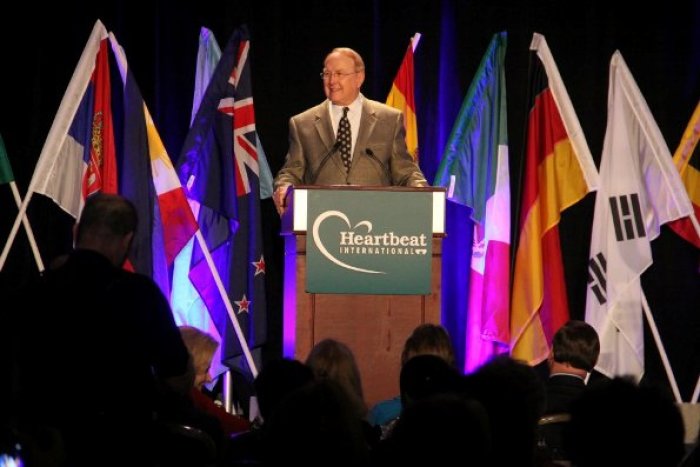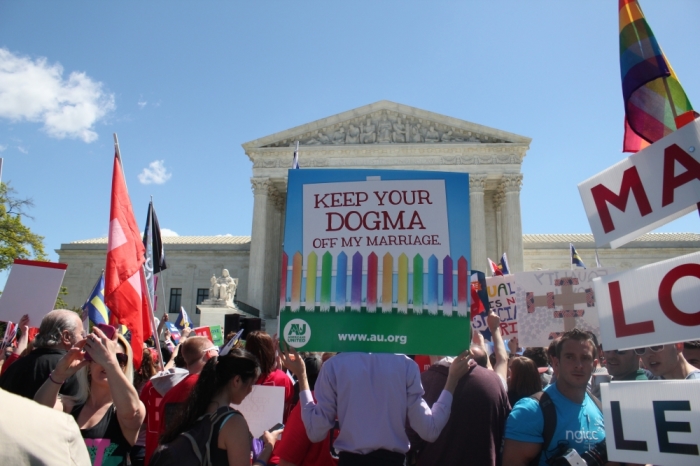James Dobson: Supreme Court Gay Marriage Ruling Could Be Next 'Roe v. Wade'

Influential conservative Christian writer and radio personality Dr. James Dobson has declared that if the U.S. Supreme Court strikes down gay marriage laws, it will have created a new Roe v. Wade.
In the May newsletter for Family Talk, Dobson, founder of Focus on the Family, wrote that if "marriage is to be reconfigured in the law, which court-watchers predict is almost certain, every dimension of the culture will be adversely affected."
"It will be one of the most momentous rulings in U.S. history, tantamount to the Roe v. Wade decision in 1973. As we know, that terrible ruling 42 years ago divided the nation irreparably and has resulted in the deaths of 58 million babies," said Dobson.
"Whatever happened to Abraham Lincoln's pronouncement in the Gettysburg Address that ours is a government 'of the people, by the people, and for the people'? It is rapidly being replaced by a government 'of the courts, by the courts, and for the courts.'"

Dobson also stressed the history of marriage as being between one man and one woman, and this definition not being only a "narrow-minded Christian concoction."
"… the desire of men and women to 'leave' and 'cleave' has survived and thrived through times of prosperity, famine, wars, peace, epidemics, tyranny, and every other circumstance and human condition," continued Dobson.
"At least 5,000 years have come and gone since that point of origin, yet every civilization in the history of the world has been built upon it."
The Family Talk newsletter remarks come just a week after the Supreme Court heard oral arguments in an appeal regarding the constitutionality of state-level gay marriage bans.
From 1998 to 2012, voters in more than half the states in the country passed amendments to their state constitutions defining marriage as being between one man and one woman.
Despite that, in recent years support for gay marriage has been on the rise, with polls indicating that a majority of Americans support legalization.
Since 2013, several decisions have declared most of these marriage amendments unconstitutional, more than doubling the number of states that have legal gay marriage.
When arguments were held last week, there appeared to be no clear direction as to how the court was going to rule on the matter.
Justice Anthony Kennedy, considered the "swing vote" for the decision, expressed doubt about striking down the state amendments.
A decision is expected from the Supreme Court in the case sometime in late June.





























